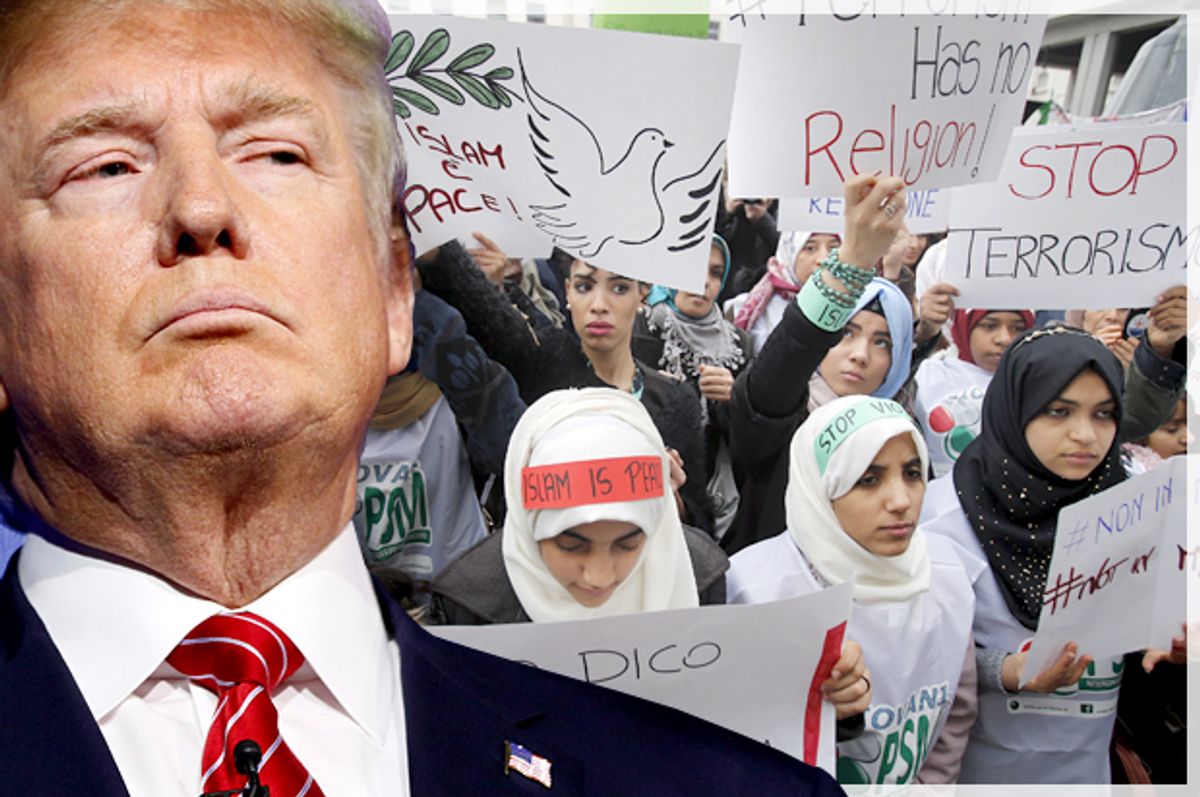Three days after an improvised bomb ripped through a mosque in Bloomington, Minnesota, early Saturday morning, President Donald Trump has yet to condemn this act of domestic terrorism.
And it’s not just because he’s busy working on his golf swing.
Trump has taken to Twitter nearly 30 times as of Tuesday morning without acknowledging the act of domestic terror against American Muslims. Less than 12 hours after Saturday’s attack on the six-year-old Dar Al-Farooq Islamic Center, Trump instead fired off five rapid-succession tweets, including one defensively insisting he was working hard during his 17-day stay at his New Jersey golf club and a re-tweet from a Trump supporter whose account has since been suspended by Twitter.
“Silence on the part of public officials at the national level only serves to empower Islamophobes,” Ibrahim Hooper, spokesman for the Council on American-Islamic Relations, told the Los Angeles Times in a statement calling on the president to condemn the bombing. The attack, which took place before dawn on Saturday, left no physical injuries but has stoked fear among Bloomington’s sizeable Muslim community. But while the president remains silent, other public officials came out quickly to condemn the attack.
Minnesota Gov. Mark Dayton issued a statement shortly after the attack on Saturday, offering “unwavering support” to the Islamic center’s congregation. On Sunday, the governor was the first public official to call the crime “an act of terrorism,” an important semantic distinction since the term is often only ascribed to acts of violence against innocent civilians when they're committed by criminals who claim to be Muslims.
An FBI-led investigation is now underway, although no motive or suspects in the attack have yet been identified. By contrast, it took the FBI fewer than 24 hours to acknowledge last year's stabbing attack at a shopping mall by a Somali-American man as a possible act of terrorism.
Sen. Al Franken also was quick to acknowledge the attack.
It’s not unusual for the president to be quick to condemn terrorism when it’s committed by Islamic extremists while ignoring anti-Muslim hate crimes. Take, for example, two acts of terror that occurred within days of each other.
Trump was initially silent about Jeremy Joseph Christian, the man who on May 26 lobbed anti-Muslim slurs at two teenage girls on a train in Portland, Oregon, then fatally stabbed two people and injured another who attempted to defend the girls. It took days for Trump to comment, and only after he received criticism for his reticence.
But the president spoke out immediately after three men murdered seven people and injured dozens with a van and knives on London Bridge nine days after the Portland attack, going so far as to criticize London Mayor Sadiq Khan, who is Muslim, by taking the mayor’s comments out of context.
A Pew survey in 2014 found that people who identify with Trump’s Republican Party are far more likely to harbor unfavorable views of Muslims. Considering that Trump’s core Republican supporters are highly in favor of his stance on issues like prohibiting travel of Muslims to the United States, the president’s unwillingness to express solidarity with American Muslims may be calculated.

Shares